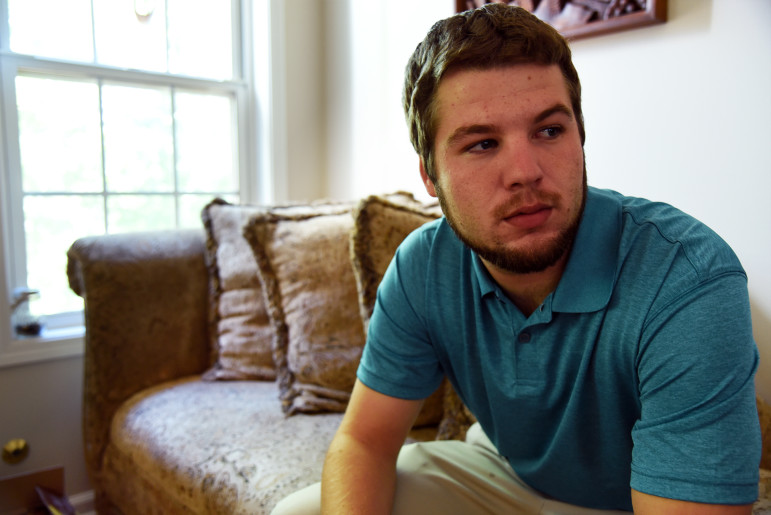
Photos by Roger Newton
Corey Roberts
NEWNAN, Georgia — It was the fake $100 bill that finally landed Corey Roberts in prison.
He’d already had one close call, getting picked up for marijuana possession at the end of his freshman year in college.
 By the middle of his sophomore year, he and some friends were selling pot too. Then one of their buddies passed a rival dealer the bogus Benjamin.
By the middle of his sophomore year, he and some friends were selling pot too. Then one of their buddies passed a rival dealer the bogus Benjamin.
That led to a beatdown that drew the attention of campus police and an 18-month stretch behind bars, including nine months in a prison drug treatment program where controlled substances were almost as common as they were outside.
Released from lockup just after his 21st birthday, he now finds himself living back with his family outside Atlanta, working in a restaurant, saddled with student loans in default, fees and fines to pay as part of his probation and a life of legally constrained horizons.
But it beats prison.
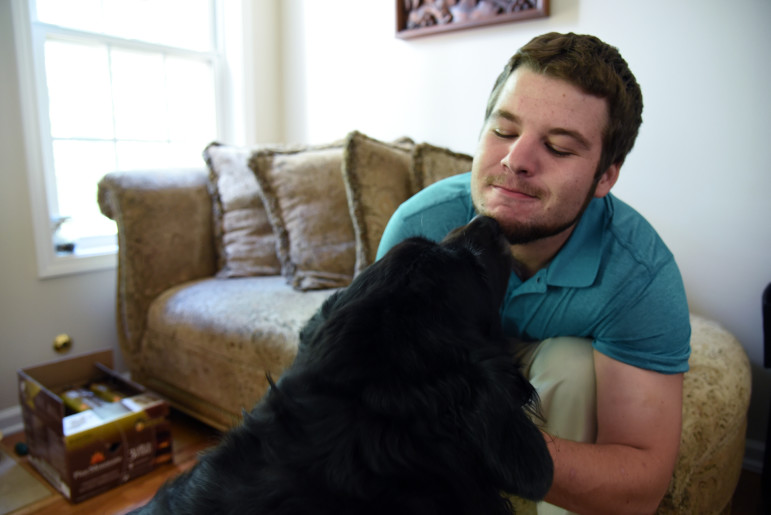
Roberts is one of millions of Americans who have served prison sentences as part of the decades-old American war on drugs. The number of inmates in the federal system alone ballooned eightfold after 1980, with drug convictions accounting for about half the 200,000-plus now behind bars, Deputy Attorney General Sally Quillian Yates told a Senate committee in October. About 210,000 more are serving drug sentences at the state level, according to the nonprofit Sentencing Project.
That swollen system has spurred bipartisan efforts to back away from the harsh sentencing practices imposed at the peak of the drug war. Federal prisons are in the process of releasing about 6,000 inmates who qualified for reduced terms under new guidelines from the U.S. Sentencing Commission.
And as more of those inmates start coming home, they’re going to be facing many of the same challenges as Roberts, who caught some breaks others haven’t.
He got into a much-sought-after prison rehab program. He had family who looked out for him while he was inside. And he knows how lucky he’s been.
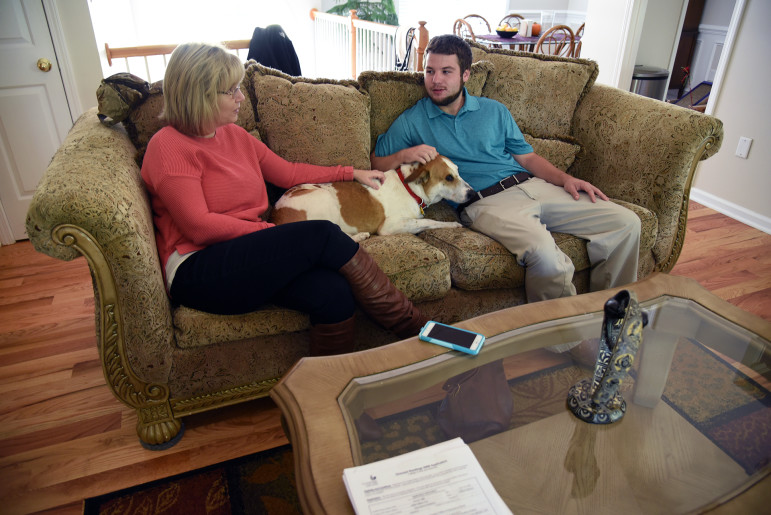
“I think while I was incarcerated, I definitely had a lot of anger toward the system,” he said. But, he adds, “I wasn’t innocent in what I did. I did a lot of wrong. It was in a lot of ways an eye-opener, because it could have been worse ... I could have gotten a lot more time than what I did.”
Roberts was a normal, active, gregarious kid — at least until 14, when he collided with another player during a soccer game. Their skulls smashed together as each jumped for a header, leaving him with a concussion. Afterward, he did “a complete emotional and physical 180,” said his mother, Doneen Mills.
“His personality changed” on that day,” Mills said. “He started getting migraines, and there was about a two-month period where he missed school. He didn’t get out of bed. He didn’t communicate with us.”
Roberts was diagnosed with depression. He was given antidepressants for moodiness and hydrocodone pills to break the migraines. He was careful with the hydrocodone, knowing the risks of addiction. But around the same time, he started smoking marijuana as well.
Throughout high school, he got high about twice a month. When he went on to college at Georgia Southern University, pot use became “pretty much an everyday thing.”
At the end of his freshman year, he and a friend were driving back to the Atlanta area from college when they pulled off for food ... and ran straight into a police roadblock in Monroe County.
“We had been smoking in the car, and when I stopped, the officer smelled it and pulled us out of the car,” he said. Police found weed on both his friend and in a jar in his trunk “that I didn’t even know about.” He was charged with possession of marijuana and pleaded guilty to the misdemeanor count, receiving probation and a $780 fine.
Back in school, though, he and some of his buddies had begun financing their own habits by dealing, making the six-hour round trip to Atlanta twice a week to secure their stash. Then one of their friends slipped another dealer a counterfeit bill. The angry dealer started texting Roberts, demanding he give up the friend’s address, and Roberts told his friends about it one afternoon.
“We had been drinking a little bit, smoking, the usual stuff,” he said. And in that haze, they decided “to beat him to the punch, so to speak.”
“I should have known better,” he added. “I was against it for a little while, but was eventually talked into it. I didn’t want to feel like I was a bad friend, which sounds kind of dumb now.”
The dealer lived in the same apartment complex where they were hanging out. He knew Roberts and another of his friends, so they covered their faces and hung back from the door while the others knocked. They stormed inside as soon as the guy’s roommate opened the door and went to their target’s bedroom. One of them started beating the dealer. The rest quickly decided things had gone too far and pulled him off. As they walked out, their leader grabbed a watch and some money.
“I didn’t know about this until after we were out of the apartment, and at that point I really didn’t think too much of it,” Roberts said. But soon, campus police were calling him in for questioning.
“They told me I wasn’t going to be arrested, of course,” he said. But they showed him images from security cameras that showed him and his friends leaving the apartment, and ended up charging him with battery, burglary and robbery. While he was awaiting bond, they told him they were working on a separate charge of selling weed — one of his buyers had been wearing a wire. Oh, and he had the counterfeit $100 in his wallet, leading to a second-degree forgery count as well.
He was looking at 15 years in prison. His lawyer started cutting a deal.
Life behind bars
Roberts eventually pleaded guilty to burglary, forgery and selling marijuana. He was sentenced to a total of 15 months in prison — six in a medium-security detention center, then a nine-month prison rehab program — followed by probation.
But then there was a snag. When it was time for him to go to Georgia’s Residential Substance Abuse Treatment program, there were no beds available.
That meant it was back to jail in Bulloch County, where his case originated, until a bed came open. While he waited, he read — mostly legal thrillers by authors like John Grisham and James Patterson, which he said were surprisingly popular in jail.
“It’s a little strange,” Roberts said. “But not as strange as the fact that when the TV is on, a lot of times they like to watch ‘Cops’ and stuff like that, which I never quite understood. They’re always saying, ‘I would’ve done this differently.’ And I’m thinking, ‘Obviously, you know what you’re doing — you’re sitting right here next to me.’”
It would be three months before Roberts got into the RSAT program at Coastal State Prison, near Savannah. It took the intercession of an Atlanta area lawyer and family friend to get him that spot. The lawyer, Dean Phillips, said that’s a common problem.
“RSAT is basically flooded with applicants, and you have to convince them that your client is the person who should go next, and it’s all up to RSAT,” Phillips said. He said he “very, very politely badgered them” until he was put in touch with someone who could decide whether Roberts got a bed.
Phillips explained Roberts’ plight — that he had been sitting in Bulloch County for three months, that he was a good kid who had a substance abuse issue, “but he comes from a good family and they’re trying to get him cleaned up and straightened out.”
“It’s not a paperwork thing. It really is all about relationships,” Phillips said. “You can’t do anything with paperwork, because RSAT in their sole discretion chooses when people will enter the program. And I just happened to find a contact and was able to convey his story.”
The next day, Roberts got a slot in the program. He was among the last of the RSAT-bound inmates in Bulloch County to get a slot in the program. Some had been waiting far longer than he had.
[Related: Nebraska’s Solitary Policies Vary Widely, Need Reform, Says ACLU]
And because RSAT is a nine-month program and was part of Roberts’ sentence, there was no way for him to get credit for the extra time served: It will be taken off the end of his probation term instead.
Gwendolyn Hogan, a spokeswoman for the Georgia Department of Corrections, told Youth Today that the typical wait time for a male inmate to get a bed in an inmate RSAT program is a month. For women, the wait times are longer — about six months. The state only runs the program at one women’s prison, Hogan said.
Coastal State was a far cry from the detention center, where Roberts was allowed to go out on work details. The inmates at Coastal stayed inside the fences.
“It was a shock, walking in and seeing all the razor wire,” he said.
But RSAT inmates had classes to attend. They stayed in a 60-bed dormitory, mostly separated from the other inmates, and focused on the coursework needed to complete their program. They had classes during the day, 12-step meetings on Wednesdays and a Thursday afternoon seminar that Roberts said usually “just kind of turned into smack talk.”
And there were fights and drugs, even among an inmate population specifically there to get clean.
“There was more drug use in the RSAT program than there was in the detention center. There was weed, pills, meth, just about every day,” he said. “The officers didn’t care. The officers are the ones who bring it in.”
Hogan did not respond to questions about the drug use Roberts described.
But state prison officials acknowledge contraband is a running problem in Georgia prisons. During Roberts’ time at Coastal State, at least two correctional officers there were caught and charged with trying to smuggle banned items — tobacco and marijuana — into the facility. Inmates would light joints or meth or contraband tobacco by using pieces of metal to coax a spark from an electrical outlet, a risky technique they called “popping the socket.”
Fights were common, even though anyone caught risked having their time in RSAT extended — or getting sent back to their home county and resentenced. But punishment was rare: Roberts said he saw one fellow inmate get his sentence extended, and that was only after he’d sustained obvious injuries.
“Usually when somebody has a mark or something on them, they’ll ask him about it,” Roberts said. “And nine times out of 10, the person will say ‘I slipped’ or ‘I fell off my bunk.’ There’s not much they can do from there.”
Whatever it takes
Roberts said he got into one fight with someone else in the program who had been extorting commissary money from him. It was over quickly, and the two men agreed to avoid each other afterward.
“At that point, I only had a couple of months left,” he said. “I told him, ‘I realize we’ve got to be in the dorm, but I don’t really want to have anything to do with you. You just do what you have to do to go home, and I’ll do what I have to do to go home, and we’ll leave it at that.’”
But it beat being in the general population, where fights were more common and sometimes involved improvised knives.
“For the most part, people in the RSAT program realized the situation they were in,” Roberts said. “They had the opportunity to do nine months instead of several years, so they wanted to do whatever they could to go home.”
The first phase of the program was dominated by inmates complaining about the program, saying they didn’t want to be there in the first place, he said. Many of the RSAT inmates refused to admit they had drug problems, “which I found kind of strange with them sitting in a prison, saying what they were doing was all right.”
The most useful parts of the program dealt with stress and anger management, and with how to prepare for situations where he might be tempted to use drugs again, he said. Most of the inmates were young people like him, but some were in their 40s and 50s. One of his classmates was a methamphetamine addict who said he had been in prison for 36 of his 52 years.
“He was worried about getting out, because he said he doesn’t know how to act around civilized people. It’s really a whole different world. He said the program helped him, because he had a real bad drug addiction.”
Inmates weren’t forced to admit they were addicts: Roberts himself says he wasn’t. Instead, he said, the RSAT program taught them a method it called “acting as if,” which Roberts summarized as “Fake it ‘til you make it.”
“Their logic behind that is if you keep acting like you’re in recovery and doing good things, that eventually it’ll become a habit,” he said.
Back home, meanwhile, his mother had to grapple with “a really helpless feeling” as her son did his time.
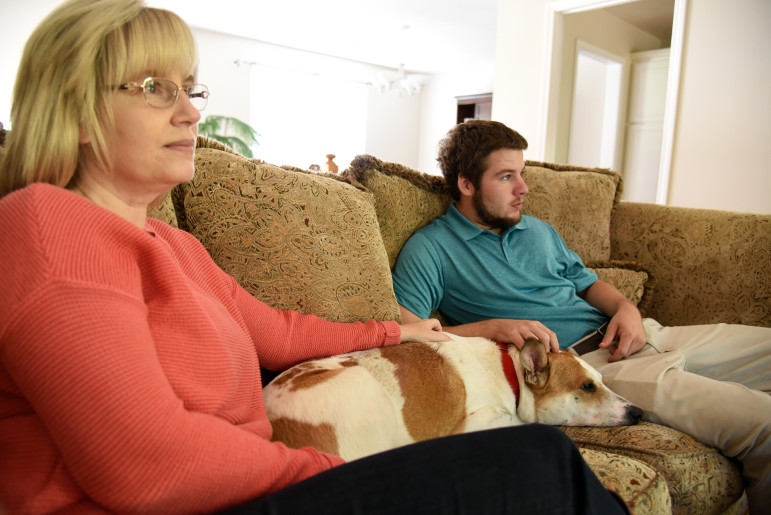
“There hasn’t been a whole lot in his life that I haven’t in one way or another, sometimes through sheer tenacity, been able to sort out, and you can’t do that in there,” Mills said. “They don’t care. They don’t care if he was a good kid, if he was captain of his soccer team.”
In addition, her son was a middle-class white kid in a system she said seemed designed to pit inmates against each other.
“Corey’s always had a really diverse group of friends — still does,” Mills said. “But there were times I was on the phone with him I could hear him being called ‘cracker.’ They’d tell him, ‘Get off the phone, cracker.’ I was worried that he was going to come out a different person.
“We talked about that a lot,” she said. “I tried to tell him that those guys, they look at him and see a guy that on the worst days can probably get treated a little differently than they are. That’s kind of hard for somebody to grasp, because he wasn’t asking for anything different.”
Roberts said the experience “really opened my eyes” to what many inmates — who in Georgia are disproportionately African-American and poor — have to deal with. Many of those in the RSAT program with him “looked at it as life or death.”
“Some of them understood that if they got back out and started doing what they were doing, if the addiction didn’t kill them, they would end up back in prison, and not in a short-term program,” he said.
“In a sense, I kind of looked at it the same way. I’m not built for that kind of environment. It’s not someplace I want to spend any more time.”
Returning home
Roberts graduated from the RSAT program and was released on Aug. 20. He moved back in with his mother and stepfather in Newnan, about 30 miles south of Atlanta.
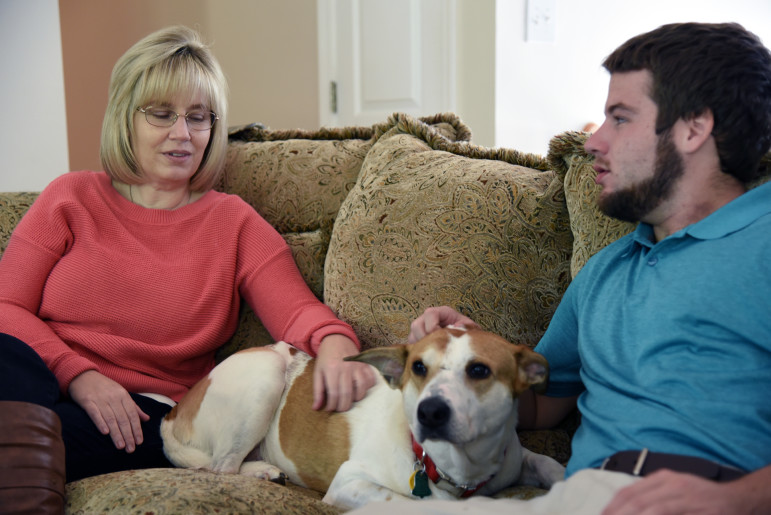
“It was overwhelming for my first two or three weeks when I got out,” he said. “I’m getting used to the flow of things again — just having the simple freedom to eat what I want, to go where I want for the most part, and not have to wait on somebody to open a door for me.”
Neil Campbell, the head of the Georgia Council on Substance Abuse, said Roberts will face “all kinds of barriers” as he tries to resume his life. Many inmates have trouble getting jobs or even getting current identification like driver’s licenses and are disqualified from receiving financial aid.
“Just systemically, the institutionalized issues of coming out are going to be hard,” Campbell said. “But he’s going to have to not let that get him down. He’s going to have to figure out what he wants to do with his life from here on out.”
Within days of his release, Roberts had a job. He’d worked deep-fryers as a teenager, so getting on with a chicken joint was easy. It helped that the application didn’t feature the long-standard question about whether you’ve been convicted of a crime. When it came to the interview, he said, they didn’t ask; he didn’t tell. But they know now. His manager, a former police officer, is OK with it.
He’s had his first meeting with his probation officer, who came to Roberts’ house to introduce himself. In addition to periodic check-ins at the probation office, Roberts will be subject to monthly, announced drop-bys.
He’s set up a five-year payment plan for his fines and the fees that Georgia probationers get charged to cover the cost of their supervision. His total is $132 a month — and if he falls behind, he risks being sent back to prison. That happened to some of the people he knew in prison, some of whom were unable to get jobs because of their records and fell behind on their plans. “It’s kind of a vicious cycle,” he said.
He’s got another 8½ years of that. But still, it beats prison.
As a middle-class white kid from the suburbs, Roberts is hardly the typical prisoner of the War on Drugs. But there’s still a “huge” drug culture in the suburbs, Campbell said, and having the support of family and friends will be critical to staying out.
“The real work happens today,” she said. “When he’s out and he’s walking down the road and an old friend sees him and says, ‘Hey, man, c’mon, I’ll take you for a ride’ — that’s when the real work happens.”
Roberts is avoiding some of his old friends, while others trim their sails around him.
“I’ve got a couple of friends that smoke, but they for the most part won’t do it around me or even talk about it around me, because they know my situation and don’t want do anything that makes me want to smoke,” he said. “Which to be honest, I really don’t, because I’ve come to realize it’s not worth it. It’s a lot more trouble than it’s worth.”
Roberts wants to go back to school. He was studying psychology before going to prison, and he’d like to resume those studies. But it’s going to be harder to do without financial aid, for which he would have to apply through a special process for drug offenders. That means most likely he’ll be picking up classes at a more affordable community college before returning to a four-year institution.
But he said if there’s one thing he learned from prison, it’s patience.
“I feel like being in that environment helped me to grow up for sure,” he said. “I feel like I needed to be in that environment to look at the bigger picture of things, and see the path that I was taking, and see other people who had been doing it their whole lives and not wanting to be that person.”
More related articles:
Judges Can Do Enormous Good If They Look at What Works for Juveniles
All the Kalief Browders Out There Deserve the Help I Got
Making Juvenile Hall the Mental Health Provider of Last — Not First — Resort
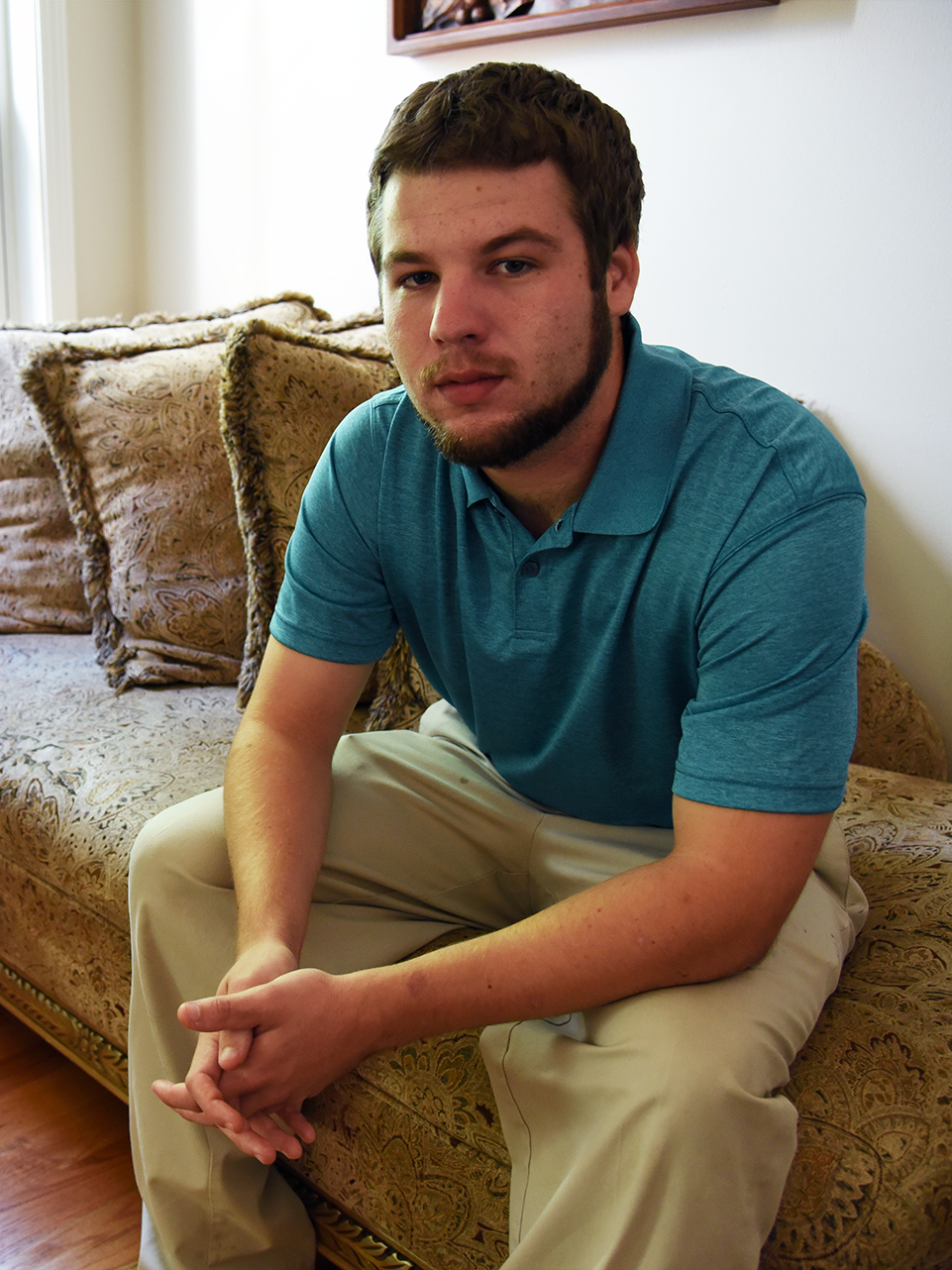
Georgia prisons are warehousing men and women that were convicted as juveniles ages 13-16 sentenced as adults to life in prison and have been incarcerated for over 20-30+yrs. With little to no chance of rehabilitation or freedom. Yet adults are being released for various crimes from nonviolent to violent murders at a higher rate and even repeat offenders recidivists are being released. Yet the men and women who were juveniles ages 13-16 who are now in their late 30s and 40s are languishing in prisons and NOTHING is being said or done to address this travesty. Tbe are victims of the justice system.